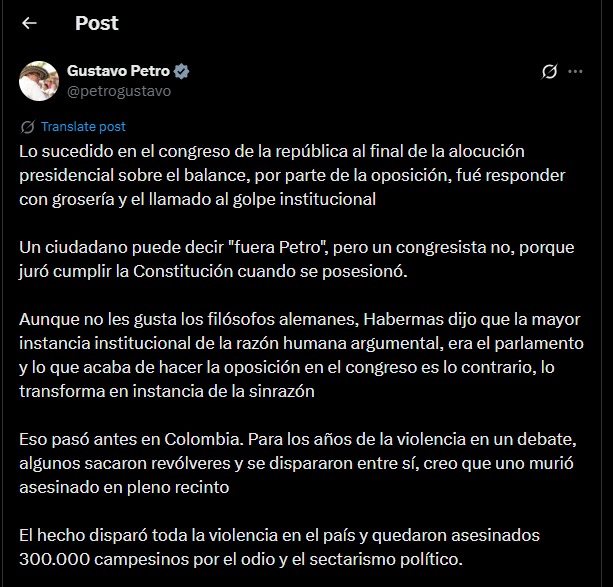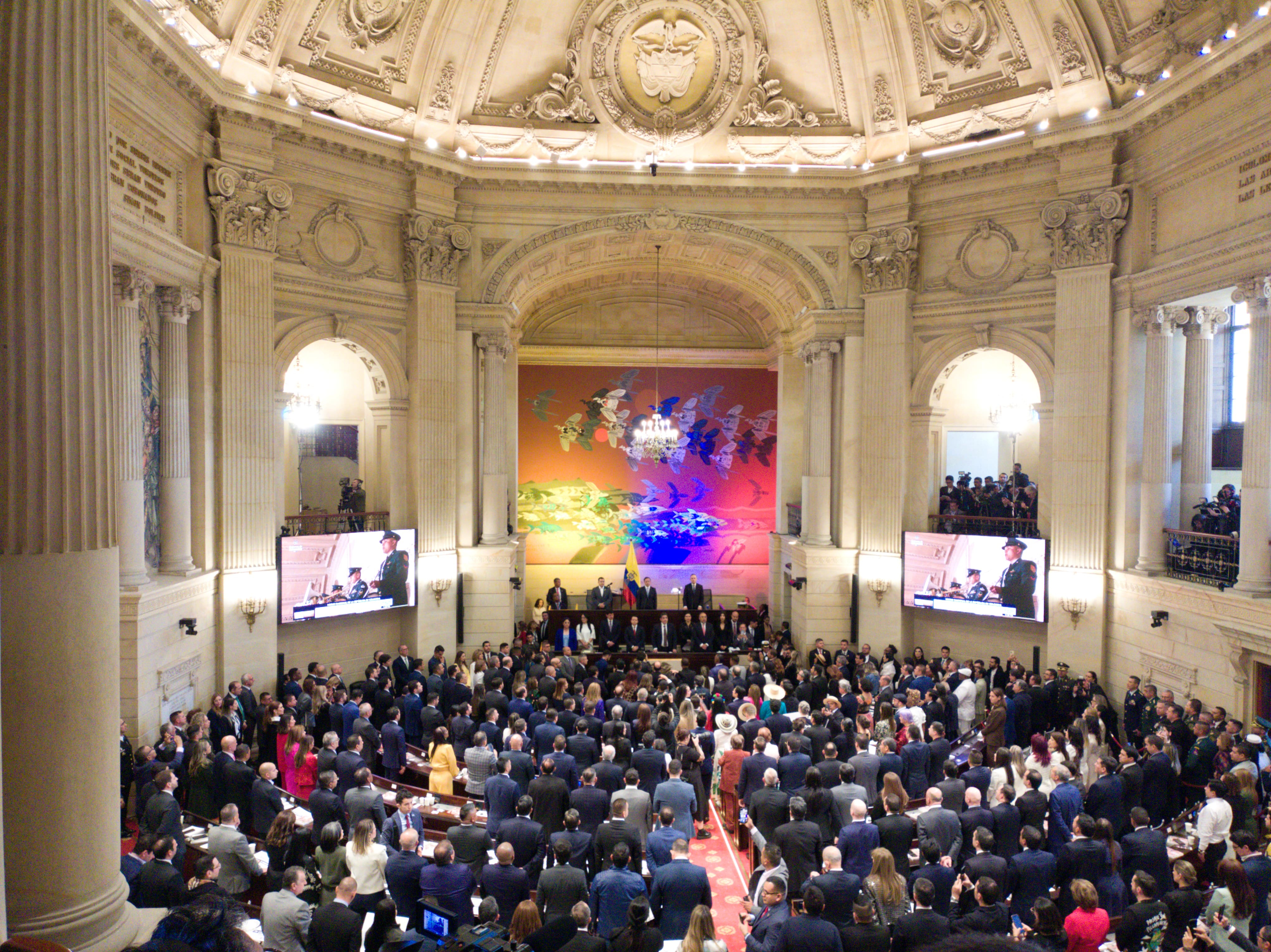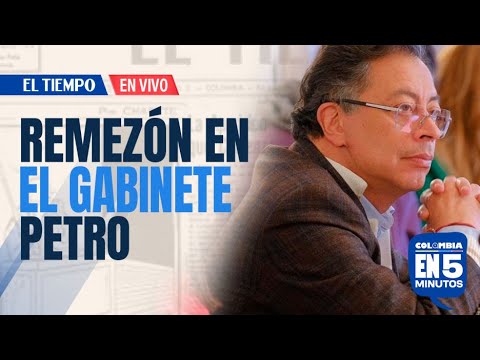Rejection of President Gustavo Petro's controversial message regarding media reports and opinions of opposition congressmen

A controversial tweet from President Gustavo Petro raised criticism from various political and legal sectors. In the post, in which he harshly attacked the media, which he believes fails to adequately report on his government, President Gustavo Petro addressed the validity of the contracts that allow radio and television stations to use the electromagnetic spectrum.
And regarding the media, along the same lines as what he called "toxic information," he stated: "Television and radio media are simply government contractors (...) The contract is for them to commercially exploit a national asset; they are concessionaires. The contract is violated if the media violates the Constitution, the right to information, and the truth. And it is being violated here every day."
Petro's message was rejected by former minister Alejandro Gaviria, who said: "Pastor Saade is not a loose cannon. When he says we need to control the media, he's following President Petro's instructions."
In the same vein, Democratic Center representative Andrés Forero rejected the president's remarks: "In this long and tedious rant, @petrogustavo is supporting the anti-democratic proposal of his disgraceful 'chief of staff' to control the media."
In the post, he also addressed opposition congressmen. "What happened in Congress at the end of the presidential address on the balance sheet, the opposition responded with rudeness and a call for an institutional coup. A citizen can say 'Petro out,' but a congressman cannot, because he swore to uphold the Constitution when he took office," President Gustavo Petro wrote.

President Gustavo Petro's tweet, in which he strongly criticized the media. Photo: X Gustavo Petro
From a legal perspective, Hernando Herrera, president of the Corporation for Excellence in Justice, argued that the president is incorrect, as members of Congress enjoy the inviolability of their votes and opinions within the parliamentary exercise, a prerogative protected by decisions of the Constitutional Court. He also asserted that the president's position, given that he has made similar statements against his opponents, is striking. Therefore, his assertions have no constitutional or legal basis.
Former President of the Constitutional Court, Luis Guillermo Guerrero, expressed similar sentiments: "There is as much scope as scope. All the public statements the President has made discrediting other public bodies and members of Congress, using completely inappropriate language, are striking. In this regard, we must have a certain degree of tolerance and never give them a literal meaning. Because 'Petro out' is not accompanied by any action to prevent the President from completing his term. It is a political demonstration, and restricting it makes no sense," he asserted.

Congress inauguration on July 20. Photo: Néstor Gómez. EL TIEMPO
There are several rulings in the Constitutional Court's jurisprudence that address parliamentary immunity. SU.062/01, for example, concluded that "members of the National Congress cannot be prosecuted for the votes and opinions they express in the exercise of their duties." And, through ruling C-1174/04, it ruled that Senators and Representatives cannot be prosecuted except for disciplinary matters for offenses provided for in the regulations of Congress, that is, in Law 5a of 1992."
The validity of the contracts There is also no legal basis for the validity of media spectrum use contracts. According to experts consulted by this newspaper, beyond the political message, which they describe as a "clear affront to freedom of expression," the current concessions are governed by medium- and long-term conditions agreed upon with the State, and failure to comply would entail contractual sanctions. Furthermore, the sources added, their suspension or termination does not depend on the President's personal opinion.
Regarding the substance of the message, the warning would contradict international rulings by the Inter-American Court of Human Rights and alerts from the Inter-American System that protect information diversity.

#Colombiain5minutes Photo:
For political analyst Jairo Libreros, “international law, the 1991 Constitution, and the jurisprudence of the Inter-American Court and the Constitutional Court protect freedom of the press and expression, especially when they unequivocally establish that national governments that impose, require, or exhort the media to comply with prerequisites such as truthfulness, timeliness, or impartiality violate human rights, because such requirements are incompatible with the fundamental right to freedom of expression.”
Justice and Politics Editorials
eltiempo





